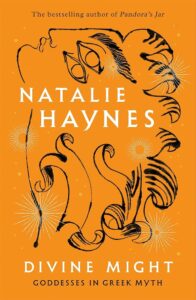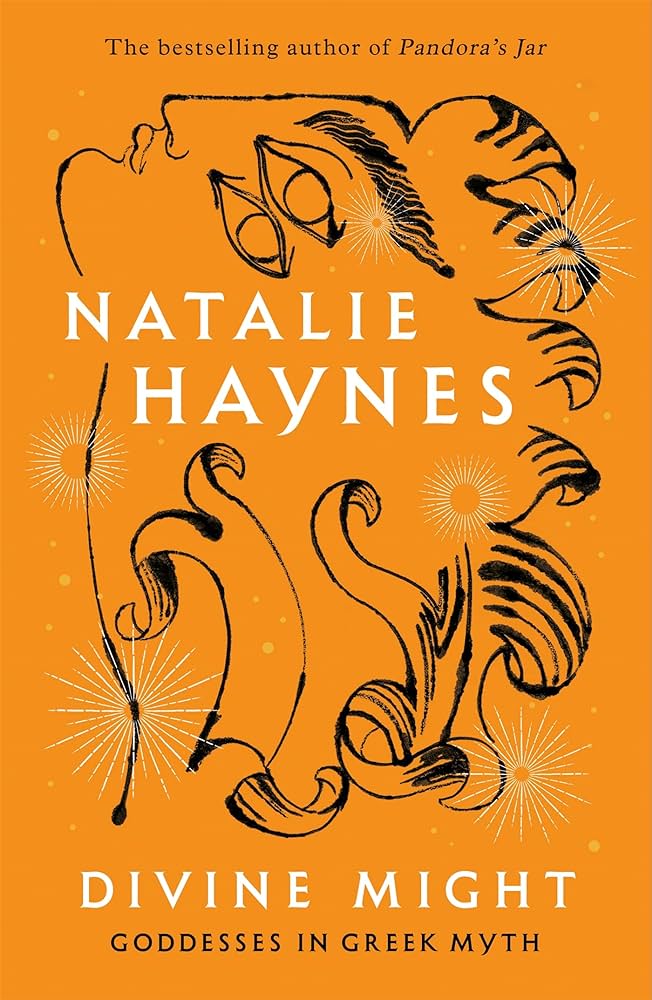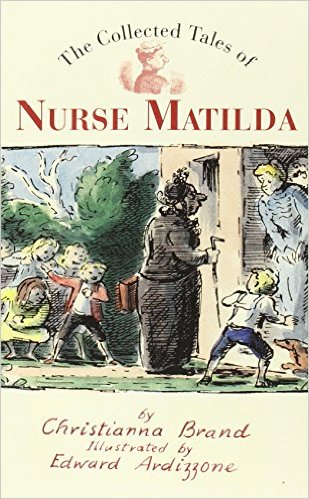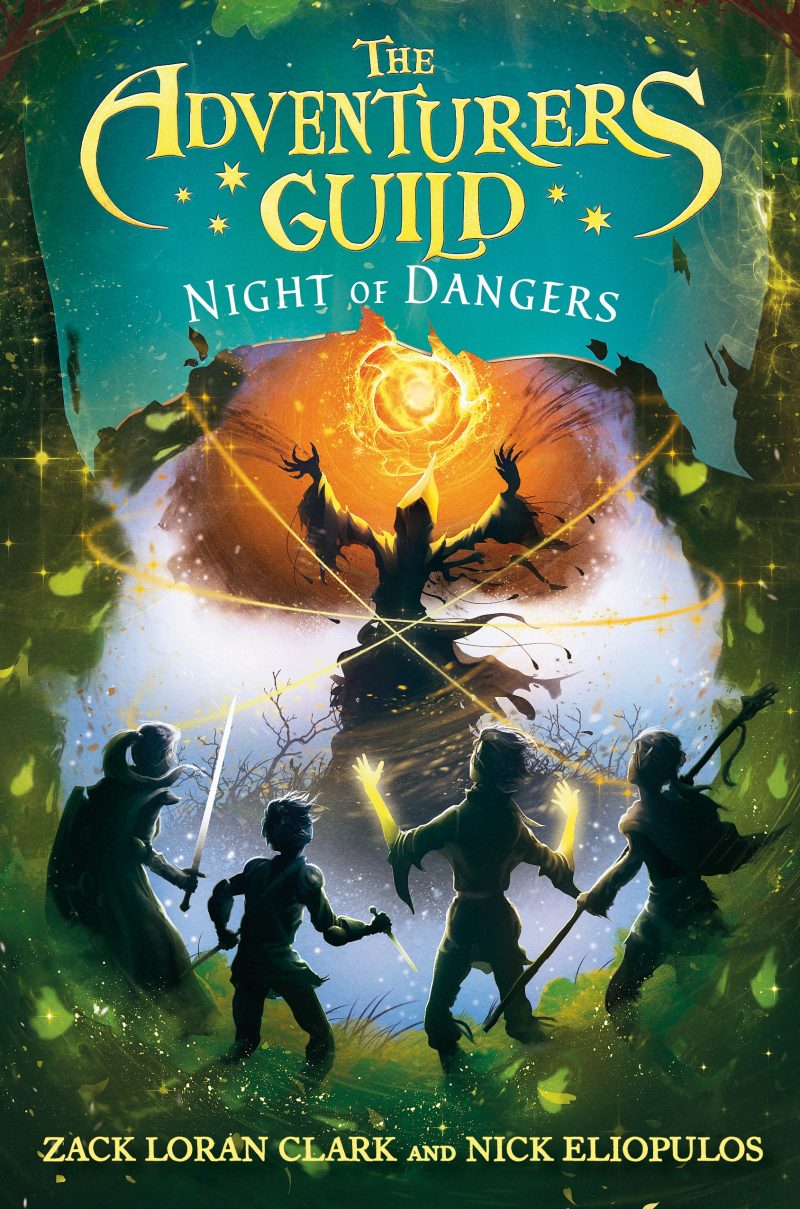 Following the immense success of Pandora’s Jar, Natalie Haynes journeys back to the grand and ever-illustrious world of Greek mythos. Both books have a rather similar premise, actually: When you look at the women of Greek myth, truly look at them, what more might you find aside from their vengeful and, oftentimes, villainous-seeming personas?
Following the immense success of Pandora’s Jar, Natalie Haynes journeys back to the grand and ever-illustrious world of Greek mythos. Both books have a rather similar premise, actually: When you look at the women of Greek myth, truly look at them, what more might you find aside from their vengeful and, oftentimes, villainous-seeming personas?
Divine Might is, unlike all my previous reviews for MuggleNet, a work of nonfiction. The book follows Haynes as she speaks of several Greek goddesses, specifically Hera, Aphrodite, Artemis, Demeter, Hestia, and Athene. Aside from this already incredible line of women, Haynes also includes the Muses and the Furies.
“If oxen and lions and horses had hands like men, and could draw and make works of art, horses would draw gods like horses, and oxen like oxen, and each would draw pictures of the gods as if they had bodies like their own.”
—p. 6
With just the first line, I was hooked. Haynes has a brilliant way of immersing you in the world of Greek myth. The entirety of Divine Might is brimming with information about Greek women that most probably don’t know. Each line is wonderfully constructed so that even with all of the details, you don’t ever get tired of reading.
I also adored Haynes’s writing style. From the way she presents the Greek myths and all those little tidbits about the goddesses, to her humorous quips spread all throughout, Haynes certainly has a way with words.
“Poets and artists throughout history have begged the Muses for assistance because the alternative is divinely bestowed writer’s block.”
—p. 21
Oh, I just love this line.
Before I get too carried away, though, one thing that I also immensely enjoyed was how Haynes made the goddesses more human. In the myths, they’re always portrayed as these great, infallible beings who occasionally (well, usually) take out their anger on a mortal or demigod who’s wronged them. In Divine Right, though, they’re more human. You get an insight into the potential reasons why they act as they do, all conveyed with the author’s wonderful writing.
“Perhaps she recognized that she was never first in his mind, just one in a series of conquests to create mothers of his divine offspring. Yet she is the goddess who takes on the status of queen of the Olympians and his previous partners are lower profile, or forgotten altogether.”
—p. 48
All in all, I just think that this is a great read, and I’d definitely recommend it.
A copy of this book was provided by the publisher, Harper Perennial, for review.





